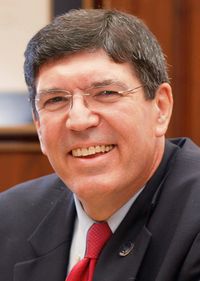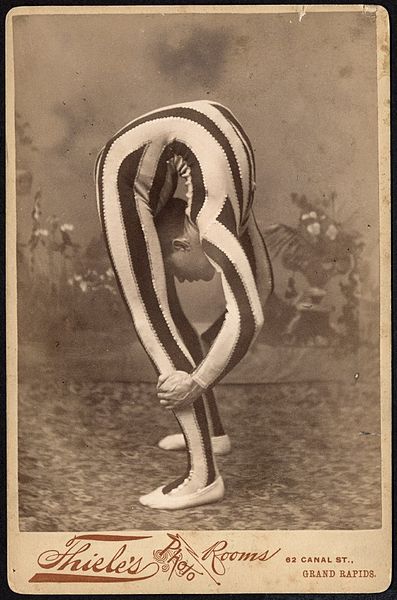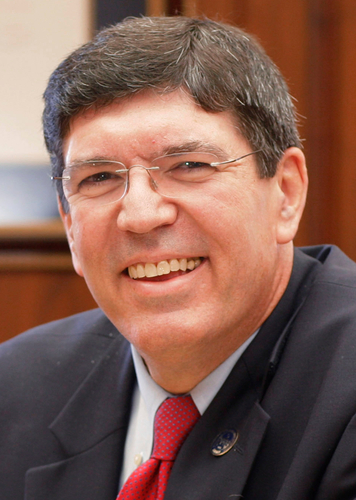On November 2nd, Lexington chooses its mayor. I’ve spent much of the past few years observing the two candidates in action.
Here, I address in some detail why one is the wrong choice for Lexington. Next, I’ll address why the other candidate will lead Lexington to a more prosperous and successful future.
::
Last December – late in his third year in office – Lexington Mayor Jim Newberry proposed an ordinance to overhaul Lexington’s ethics laws.
 Among other proposals, the ordinance suggested that lobbyists be prevented from serving as fundraisers or campaign treasurers for local campaigns.
Among other proposals, the ordinance suggested that lobbyists be prevented from serving as fundraisers or campaign treasurers for local campaigns.
Two days later, Newberry attended a $10,000 fundraiser for his campaign at the home of David Whitehouse, a registered lobbyist.
Proposed after the Urban County Council had adjourned for its winter break, little came of Newberry’s ethics proposal when council reconvened in 2010, and the mayor did little to promote his ethics initiative.
In microcosm, “Lobby-gate” encapsulates Jim Newberry’s tenure as Lexington’s mayor. Let’s look at a few themes which emerged from this incident:
- Scandal Blindness. The mayor seems unable or unwilling to recognize and act upon wrongdoing.
Why would Newberry attend fundraiser in a lobbyist’s home only two days after suggesting that Lexington should eliminate such a practice? He either didn’t think – or didn’t care – about how apparently inappropriate his actions were.
- Failure to Lead. Newberry has resisted decisive action when faced with important issues.
While ethics reform was a centerpiece of Newberry’s 2006 run for mayor, he waited over 3 years to offer a proposal, and did so only as he and his competitors were ramping up for the 2010 campaign.
- Hypocrisy. In the wide gulf between words and deeds, the mayor often opts for symbolic posturing (rather than substantive action).
When questioned by local media about the fundraiser, his response was less-than-satisfactory for a ‘reformer’: “I… will continue to operate by the rules of the world as they exist.”
With his ethics proposal, Newberry could now make the empty claim that he ‘delivered’ a campaign promise for ethics reform. Meanwhile, he would do precious little to see his half-hearted proposal – made while council was on break – into law.
- Favoritism. When Newberry does take action – or refuses to act – the beneficiaries are often his friends and campaign contributors.
Refusing to act on ethics reform allows lobbyist-contributors like Whitehouse (who represents a software firm that did work on the city’s financial systems) to operate without scrutiny or interference from the city.
- Failure to Deliver. Ultimately, the Newberry regime is marked by a pattern of profound inability deliver meaningful results.
Lexington’s ethics laws today are essentially unchanged from when Newberry entered office.
Isolated to a single incident, these flaws might be forgivable. But they are not isolated: We can see these tendencies consistently pervading Newberry’s conduct as mayor.
::
Scandal Blindness
This administration has been plagued by scandal.
- There was out-of-control spending by the Bluegrass Airport staff and poor oversight by the Airport board of directors, who are appointed by the mayor.
- There was out-of-control spending by the Kentucky League of Cities and poor oversight by KLC’s board. Newberry is a member of that board.
- There was out-of-control spending by the Lexington Public Library staff and poor oversight by the Library board of trustees, who are appointed by the mayor.
- In the wake of the Haitian earthquake, there was Newberry’s failure to quickly approve sending a specially-trained Lexington Search and Rescue team into the quake zone. The delay meant that the team was relegated to a support role. The mayor’s indecisiveness likely cost lives.
- There were the accusations of fraud by Patrick Johnston, Newberry’s own Director of Risk Management in the Lexington-Fayette Urban County Government.
While actions in question failed to rise to the legal definition of fraud, the investigations into the Johnston affair revealed fresh concerns over how Newberry’s administration behaved – including audit breakdowns, ethical failures, privacy breaches, and retaliation.
After months of obstruction and delay in the Johnston affair, Lexington was left with a ridiculous predicament: the city government sued itself, and taxpayers footed both sides of the $50,000 bill.
While Newberry wasn’t implicated in these scandals, he has been indecisive and ineffectual in responding to them.
First, Newberry minimized possible wrongdoing. Then, he questioned the motives and challenged the authority of those who wanted to take action on the scandals, preferring to let the respective boards handle their ‘internal’ issues. As weeks and months of inaction (and, in some cases, obstruction) became deeply embarrassing, he finally ‘welcomed‘ the investigations which were already underway.
As scandal upon scandal broke, Newberry could have learned from each one – figuring out how to lead decisively in the face of scandal. Instead, Newberry seemed to intensify a kind of bunker mentality – choosing to hunker down until the uproar passed.
Failure to Lead
As seen with the scandals above, Newberry has demonstrated an appalling failure to lead just when his leadership was needed most.
Another area which needed strong mayoral leadership has been Lexington’s urban development, especially throughout downtown. Instead, Newberry has adopted a laissez faire attitude – opting instead to do little to help guide downtown development efforts.
- The mayor has been a steadfast supporter of the failed CentrePointe development, even as the project’s deep flaws became evident. As a result, Newberry stood by while the developer tore down a neglected-but-historic block of buildings in the center of our city. And he has done little to ensure that responsible development happens on that still-vacant block.
- As the council adopted design guidelines for the downtown area, Newberry failed to offer any executive leadership to see form-based guidelines defined and implemented. So when CVS wanted to build a new pharmacy at the gateway to downtown, Lexington had few formal requirements guiding the ultimate design of the structure.
- The mayor has extended this do-nothing approach to historic preservation initiatives, refusing to see how economic development and historic preservation can be complementary efforts. He has incorrectly characterized design and preservation as matters of ‘taste’ rather than of smart economics for Lexington.
- At the last minute, the mayor launched a poorly-conceived and transparent effort to block the funding of improvements for Lexington’s Distillery District.
As we’ll see more in a few moments, when the mayor actually does take decisive action, the results are questionable.
Hypocrisy
Without apparent shame, the mayor often maintains a stark and hypocritical disconnect between what he says and what he does. He seems to think that voters won’t notice if he does one thing while he says the opposite.
- He pushed his expensive water plant plan through council while accepting huge contributions from water company executives and allies. Now he is ‘outraged‘ about 65% increase in water rates – a burden that his plant put on taxpayers. Hypocrisy.
- He and his staff actively suppressed the release of government information during the Johnston scandal while announcing a ‘new’ government transparency initiative. Hypocrisy.
- He dragged his feet on investigating scandals at the Airport, the Library, and KLC, only acting when his inaction became embarrassing. Now, he likes to claim that he ‘strongly condemned’ the same scandals he failed to act upon. Hypocrisy.
- He browned out fire stations and decreased police and fire staffing while declaring that public safety was “job one”. Hypocrisy.
- His contributors like to ridicule putting local businesses first (especially this local contributor who contracted on the local $160 million water plant with his local business), while he champions projects which benefit those same contributors – some of Lexington’s wealthiest citizens and corporations. Hypocrisy.
- He attacks his opponent’s accomplishments in his part-time position as Vice Mayor, all the while hoping nobody asks “What has Jim Newberry really accomplished as mayor?” Hypocrisy.
This serial hypocrisy is compounded by Newberry’s profoundly Bushian inability to admit mistakes. Such lack of humility means that he is unable to go back and fix the problems of his administration.
Newberry’s campaign is built upon the cynical belief that voters will remain ignorant of such hypocrisy.
Favoritism
There is a short list of mayor-driven accomplishments during the Newberry tenure: downtown streetscapes, the Lyric theater, the $160 million water plant, and CentrePointe stand out. As we look across this list, we notice a distinct pattern: the primary beneficiaries of the mayor’s action – when he chooses to actually take action – are Lexington’s richest citizens and companies.
- If the Tax Increment Financing (TIF) that Newberry promoted for CentrePointe does more for Dudley Webb than for the average Lexingtonian (and it does), it amounts to little more than corporate welfare.
- If streetscape projects greatly benefited Leonard Lawson (the owner of ATI Construction and already one of Kentucky’s wealthiest people), while the average citizen was made to wait in traffic jams for 15 months, it seems that the mayor’s friends’ priorities are put ahead of voters.
 If the mayor pushes through a $160 million water plant which lines the pockets of Warren Rogers and other campaign contributors – while making average families pay 65 percent more for water – that, too, amounts to corporate welfare and pay-to-play.
If the mayor pushes through a $160 million water plant which lines the pockets of Warren Rogers and other campaign contributors – while making average families pay 65 percent more for water – that, too, amounts to corporate welfare and pay-to-play.
These projects were among the most contentious that the council considered over the past four years. And on each one, the mayor was more active and vocal than usual in strong-arming them through council. For whose benefit?
Failure to Deliver
When we look over the Newberry record, we have to ask what Jim Newberry has really accomplished for Lexington. And that record is not impressive:
- He dropped the ball on overseeing the Airport scandal, the Library scandal, and the Kentucky League of Cities scandal.
- He dropped the ball on CentrePointe.
- He dropped the ball on the water plant.
- He dropped the ball on delivering more firefighters and police officers.
- He dropped the ball on saving lives in Haiti.
- He dropped the ball on the fire station brownouts.
- He dropped the ball on the budget and responsible spending.
- He dropped the ball on jobs.
- He dropped the ball on economic development.
After so many fumbles, it is time to bench our current mayor.
Jim Newberry is the wrong choice for Lexington.








